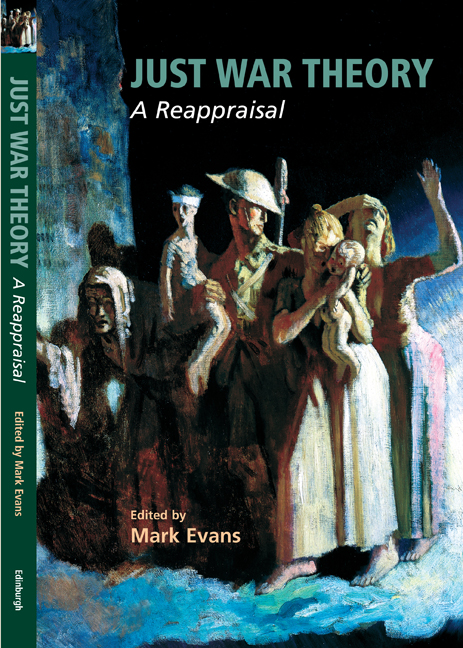Book contents
- Frontmatter
- Contents
- Notes on the Contributors
- Preface and Acknowledgements
- Introduction Moral Theory and the Idea of a Just War
- JUST CAUSE
- 1 The Justice of Preemption and Preventive War Doctrines
- 2 Punitive Intervention: Enforcing Justice or Generating Conflict?
- 3 In Humanity’s Name: Democracy and the Right to Wage War
- JUSTICE IN THE CONDUCT OF WAR
- 4 The Concept of Proportionality: Old Questions and New Ambiguities
- 5 Just War? Just Children?
- 6 Is There a Supreme Emergency Exemption?
- JUSTICE AND THE END OF WAR
- 7 Security Beyond the State: Cosmopolitanism, Peace and the Role of Just War Theory
- 8 Forgiveness and Reconciliation in Jus Post Bellum
- CONCLUSION
- In Defence of Just War Theory
- Bibliography
- Index
3 - In Humanity’s Name: Democracy and the Right to Wage War
Published online by Cambridge University Press: 03 October 2020
- Frontmatter
- Contents
- Notes on the Contributors
- Preface and Acknowledgements
- Introduction Moral Theory and the Idea of a Just War
- JUST CAUSE
- 1 The Justice of Preemption and Preventive War Doctrines
- 2 Punitive Intervention: Enforcing Justice or Generating Conflict?
- 3 In Humanity’s Name: Democracy and the Right to Wage War
- JUSTICE IN THE CONDUCT OF WAR
- 4 The Concept of Proportionality: Old Questions and New Ambiguities
- 5 Just War? Just Children?
- 6 Is There a Supreme Emergency Exemption?
- JUSTICE AND THE END OF WAR
- 7 Security Beyond the State: Cosmopolitanism, Peace and the Role of Just War Theory
- 8 Forgiveness and Reconciliation in Jus Post Bellum
- CONCLUSION
- In Defence of Just War Theory
- Bibliography
- Index
Summary
INTRODUCTION
The American-led invasion of Iraq in 2003 and its subsequent occupation has been the most controversial event in world politics of recent times. As is abundantly clear from the frequency with which it is invoked in this book, it raises a whole battery of issues for just war theory to address. Indeed, one might think of it as a laboratory in which the theory may be put to the most exacting tests. In this chapter, we consider some questions arising from the controversy as to whether the invading coalition possessed the authority to launch the war: did it have the institutional right to do so? For it is a crucial tenet of traditional just war theory that not every organised armed body of people has the right to use those arms, even if they were to do so in a manner that satisfied the theory's other criteria. (This is criterion 1(g), as laid out in the Introduction.) The main reason for this, it may be reasonably conjectured, is that the demands of political order must always restrain the resort to war and, without the insistence on a precisely identified legitimate authority, ‘just wars’ would lead to a chaotically anarchic world.
In the Introduction, I observed how in modern times just war thinking was instrumental in the shaping of conventions governing warfare in international law. Unsurprisingly, much of the dispute over the Iraq war in this regard centred upon its legality with respect to these established statutes and practices. Complex and heated though the debates are, we might summarise the charge that the US-led coalition faced thus: the United Nations Charter permits war only as a last resort and in self-defence except where Security Council authorisation explicitly permits otherwise – a proviso not in this instance met. The case for the defence marshalled a variety of counter-arguments: one was that the self-defence justification alone sufficed (an argument explored in Chapter 1); another was that previous Security Council resolutions did provide adequate legal justification to obviate the need for a further explicit authorisation; a third was based around the claim that NATO's 1999 air war against Serbia over the Kosovo crisis established a precedent for the legitimate circumvention of the Security Council.
- Type
- Chapter
- Information
- Just War TheoryA Reappraisal, pp. 71 - 90Publisher: Edinburgh University PressPrint publication year: 2020



